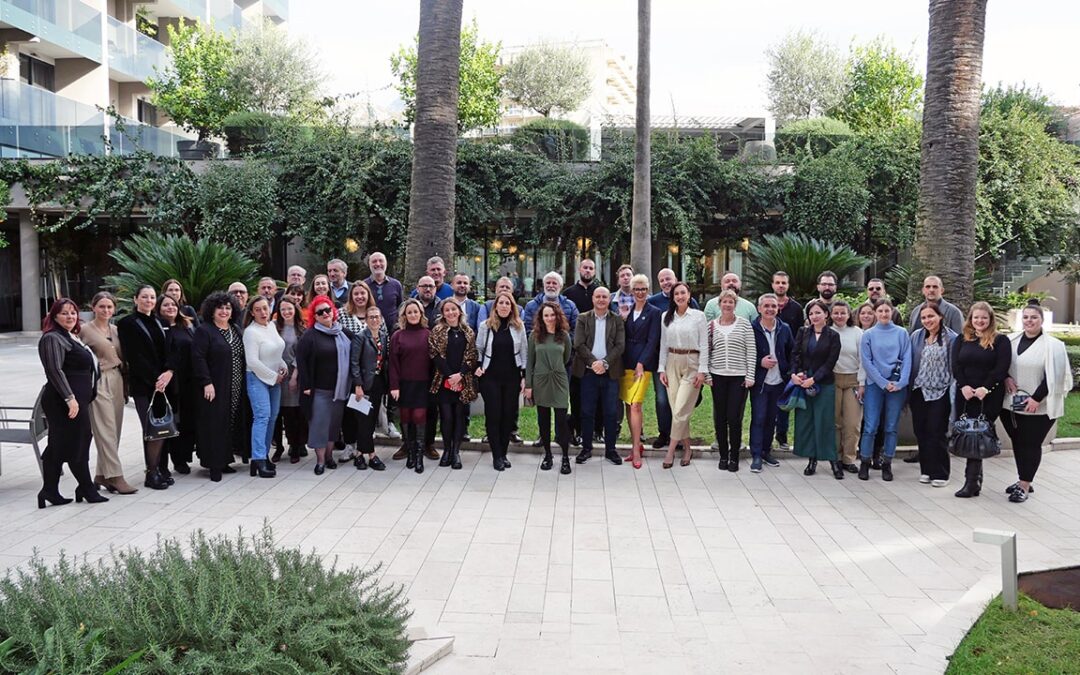This year’s Regional Decent Work Academy, organized in late November by the Institute for Social Policy “Musine Kokalari” in Kosovo, the Centre for the Politics of Emancipation in Serbia, the Safety at Work Association of Montenegro, and ZORA – the Association for Social, Cultural, and Creative Development in Bosnia and Herzegovina, brought together 60 participants from 45 organizations and trade unions.
Over two working days in Igalo, Montenegro, we discussed the cooperation between trade unions and non-governmental organizations, joint campaigns, and exchanged experiences on strikes and negotiation strategies in the fight for labor rights. The topics covered during the panel discussions, lectures, and workshops included gender equality in the labor market, the fight for a living wage, occupational safety and health, and unpaid care work. We discussed the importance of including social and labor rights in the “Green Agenda” and any consideration of a sustainable future with Aleksandra Kiković, Team Leader for Inclusive and Green Growth in UNDP Montenegro, while we discussed the German Supply Chain Act and the EU Directive on Due Diligence, and the significance of these legal frameworks for the Western Balkans with Maren Leifker from the Brot für die Welt foundation. The president of the New Syndicate from Croatia, Mario Iveković, shared experiences of this union’s cooperation with civil society organizations in the fight for workers’ rights.
During the conference, reports on the state of labor rights in individual Western Balkan countries were also presented. The reports were based on the decent work indicators of the International Labour Organization, in cooperation with Mario Reljanović, a research associate at the Institute for Comparative Law in Belgrade.
We organized the conference as a continuation of the regional gathering that we started last year in Durrës, when 20 organizations signed the Decent Work Manifesto. At this year’s gathering, another 24 organizations, including 14 unions, signed the Manifesto, thus demonstrating their commitment to the regional fight for better living and working conditions.
The network of organizations that we are forming in this process will serve in the future as a platform for strengthening regional cooperation, exchanging ideas and experiences, and developing joint strategies that will enable the improvement of labor and social rights in the Western Balkans. Regional solidarity and connectivity are of key importance for the progress of our societies.
You can find out more about the regional initiative on the website www.decentworkbalkans.com, where you can also find reports on the state of labor rights in the Western Balkans.
The organization of the conference was supported by the European Fund for the Balkans and the Western Balkans Fund.
